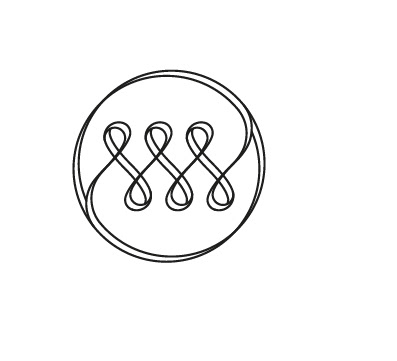Historically, diverse groups of people settle in different places of the planet, starting to create values, tools, rituals, heroes, and eventually, culture. These values and commonalities were shared between multiple alliances for various ends, all of them evolving in time. Today, design agency creates culture on different levels and contexts, culture shapes values, and most importantly, values determine the future (Cormier, Cheng, & Wei, 2017).
Culture is derived from a series of concepts, people, and actions; I stress the most relevant ones for this Taxonomy. Culture requires actors (bodies); in the context of design, these individuals bring skills, opinions, and experiences. None of these notions are fruitful without proper interactions and synergies, encouraging collaboration. As Coyle (2018) suggests, "group culture is one of the most powerful forces on the planet." However, without narratives (images), it's challenging to construct purposes that humans relate and react to. Designers have a responsibility to be storytellers inside society, creating a new meaning to shared goals and values. Culture does not define people, actions do (Foucault et al., 1988).
Many events at the beginning of the 21st-century set the uncontrolled fast pace change the world is living. Guy Debord (1977) clearly defined "the spectacle," like modern society itself, "a constant duel of being divided and united at once" (p. 23). Several social and political events potentialized by technology disruption in the last decade, confirm that human values are different from one another. "Some people give love for money, time for power, and integrity for success" (v-o-v, 2018).
All design is ideological, and the many perceptions of reality drive the design process. This process is influenced by the conditions that inform the world’s status. Therefore, the future of design is suggested in two far ends, affirmative design, and unsurprisingly, critical design (Dunne & Raby, 2001). The former reinforces the idea of ‘business as usual’ the latter rejects the status quo and challenges the ontological output of design. Design agency is then wholly inclusive and influential, ‘hacking’ and restructuring “worlds-within-the world.” (Escobar, 2018; Fry, 2012, p. xvi)
Design’s influence on culture and values is apparent; the impact it creates is evident and expanding at a rapid rate. Design needs leadership, transparency, inclusivity, and openness to generate strong strategies that are critical and encouraging. The world’s hyper connection is unearthing curiosity and a quest for ‘the truth’. New theories and methodologies are bordering designers towards this transition.
To suggest a means of action, I state my interest in the value of values. Influence by design, reinforced and canalized through the theory and method of Value Sensitive Design. VSD presents techniques to explain and resolve value questions during the development of a system's design (Friedman, 2019). The methods implemented englobe research on moral philosophy, recognizing cross-sectional stakeholders, fundamental values involving different scenarios, and their relationships to design. VSD does not only search to create value based on people's demands. In fact, it continually questions what value means to society and cultures (axiological network), consciously, or unconsciously. Contextually and systematically transforming design itself and it’s progress.
References:
· Cormier, B., Cheng, M., & Wei, Y. (2017). Values of design. Shanghai, China: Shanghai Fine Arts Publisher.
· Coyle, D. (2018). The culture code : the secrets of highly successful groups (First edition.. ed.). New York: Bantam Books.
· Debord, G. (1977). Society of the spectacle. Black & Red.
· Dunne, A., & Raby, F. (2001). Design noir : the secret life of electronic objects. London : Basel: August Birkhäuser.
· Escobar, A. (2018). Designs for the pluriverse : radical interdependence, autonomy, and the making of worlds. Durham: Duke University Press.
· Foucault, M., Martin, L. H., Gutman, H., & Hutton, P. H. (1988). Technologies of the self : a seminar with Michel Foucault. Amherst: University of Massachusetts Press.
· Friedman, B. (2019). Value sensitive design : shaping technology with moral imagination. Cambridge, MA: MIT Press.
· V-o-v, T. K. (2018). About VoV. Retrieved from https://www.v-o-v.io/about.
· Cormier, B., Cheng, M., & Wei, Y. (2017). Values of design. Shanghai, China: Shanghai Fine Arts Publisher.
· Coyle, D. (2018). The culture code : the secrets of highly successful groups (First edition.. ed.). New York: Bantam Books.
· Debord, G. (1977). Society of the spectacle. Black & Red.
· Dunne, A., & Raby, F. (2001). Design noir : the secret life of electronic objects. London : Basel: August Birkhäuser.
· Escobar, A. (2018). Designs for the pluriverse : radical interdependence, autonomy, and the making of worlds. Durham: Duke University Press.
· Foucault, M., Martin, L. H., Gutman, H., & Hutton, P. H. (1988). Technologies of the self : a seminar with Michel Foucault. Amherst: University of Massachusetts Press.
· Friedman, B. (2019). Value sensitive design : shaping technology with moral imagination. Cambridge, MA: MIT Press.
· V-o-v, T. K. (2018). About VoV. Retrieved from https://www.v-o-v.io/about.
